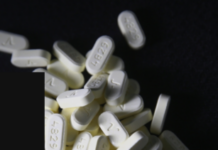The Pharmaceutical Industry in Contemporary Capitalism
In this piece for the Monthly Review, Joel Lexchin details four strategies that the pharmaceutical industry is utilizing in order to maintain its high level...
“When the Brain is Under Attack”
The Boston Globe reports on the discovery of a newly recognized neurological disease, anti-NMDA receptor encephalitis. The disease is believed to be caused when the body’s immune system attacks proteins in the brain associated with the communication of neurons.
There’s No Such Thing As “Sound Science”
In this piece for FiveThirtyEight, Christie Aschwanden explains how various industries have used the language of the "open science" reform movement, which advocates for more transparency in scientific...
A University Ethics Scandal Turns Into a Business Opportunity
From City Pages: In a 2014 University of Minnesota research scandal, a young man was coerced into an experimental drug study conducted by his psychiatrist that...
Lack of Sleep May be a Cause of Mental Health Conditions
From Live Science: A new study published in The Lancet Psychiatry found that participants who completed an online cognitive behavioral therapy program specifically for insomnia experienced...
Reports of the Death of Psychiatric Drug Research Have Been Exaggerated
-Forbes reports on the "boom" in psychiatric drug research that is going on, after a short period where onlookers were claiming that pharmaceutical companies were leaving the business.
Proove Biosciences Sells Off Assets as CEO Departs
From STAT: Proove Biosciences, which sold dubious DNA tests to predict opioid addiction risk, has been placed into court-ordered receivership for restructuring and asset sale. Experts...
Pharma Backing of Advocacy Groups: A Call for Transparency
From HealthNewsReview.org: In light of the opioid crisis, lawmakers are growing increasingly concerned about financial conflicts of interest in patient advocacy groups. Ontario has enacted...
“Psychiatric Drugs Are Being Prescribed to Infants”
The New York Times reports that a growing number of infants and toddlers are being prescribed dangerous psychiatric drugs. “Almost 20,000 prescriptions for risperidone (commonly known as Risperdal), quetiapine (Seroquel) and other antipsychotic medications were written in 2014 for children 2 and younger, a 50 percent jump from 13,000 just one year before.”
Have Smartphones Destroyed a Generation?
From The Atlantic: The pattern of constant smartphone and social media use among post-Millennials may be leading to a public mental health crisis. Research shows that...
Some Social Scientists are Tired of Asking for Permission
From The New York Times: The Department of Health and Human Services's Office for Human Research Protections recently revised its rules for social science research. Studies...
Hundreds of Researchers to Replicate Psychology Studies
From BuzzFeed: As part of a new network called the Psychological Science Accelerator, more than 400 psychologists worldwide are teaming up to fix the so-called replication...
Drug May Lead to Early Death for People With Alzheimer’s
From The Washington Post: A recent study found that benzodiazepines are associated with a greater chance of early death for those with Alzheimer's.
"Researchers analyzed data on...
“Maybe Oregon Shooting and Others Aren’t About Mental Illness”
Matthew Cooper, writing for Newsweek, reports that despite the preponderance of political rhetoric about “mental illness” after mass shootings, a review of the research suggests that the connection between mental health and gun violence is dubious.
Behaviour is Considered More Moral the More Common it is
From Medical Xpress: New research demonstrates that our view of selfish and altruistic behaviors is dependent upon how common they are; we are more likely to...
“SCIENTIFIC REGRESS”
William A. Wilson presents shocking evidence that a lot of published research is false and that science’s self-correcting mechanisms are broken. “There is no...
“Stem Cells to Treat Depression?”
A phase 1 study for a stem cell derived agent that promotes the growth of new nerve cells in the brain demonstrated efficacy in a very small sample of patients diagnosed with major depressive disorder (MDD). The phase 1B study was published online December 8 in Molecular Psychiatry.
Consciousness Goes Deeper Than You Think
From Scientific American: Many articles and papers equate the experience of consciousness with awareness. However, the reality is that it is possible to experience consciousness without...
Trump’s Pick to Oversee Big Pharma has Ties to Opioid Industry
From The Intercept: Newly released documents show that Dr. Scott Gottlieb, President Trump's nominee to lead the FDA, has received almost $45,000 in speaking fees...
How UCLA is Fighting a Proxy Patent Battle in India
From The Wire: Xtandi, a life-prolonging cancer drug, currently does not have a patent in India, meaning that Indian cancer patients are able to access...
The Myth of the 30 IQ Point “Communication Range”
From Neuroskeptic: The idea that two people who have an IQ difference of more than 30 points cannot communicate with one another is not based...
The Enduring Myth of the Mad Genius
From Wellcome Collection: It has long been assumed that great writers and artists must be touched by madness. However, no link between artistic talent and...
“FDA Issues New Draft Guidelines For ‘Appearance’ of Conflicts of Interest”
For STAT news, Pharmalot correspondent Ed Silverman reports on a new guideline being drafted by the FDA that adds new rules that could restrict...
“Move Over Big Pharma Amphetamines — Cannabis Successfully Treats ADHD in Clinical Trials”
At Alternet, Jay Syrmopoulos of The Free Thought Project discusses new research on the use of medical marijuana as a treatment for ADHD within the context of the ongoing debate over the validity of the ADHD diagnosis.
“Saving Psychiatry From Itself”
University of Liverpool's John Read suggests the "unscientific" nature of psychiatry is a major part of what is driving medical students away from the profession.

























